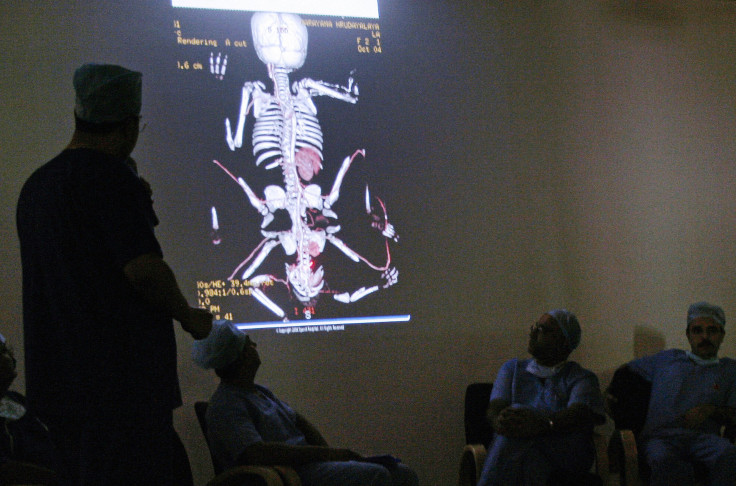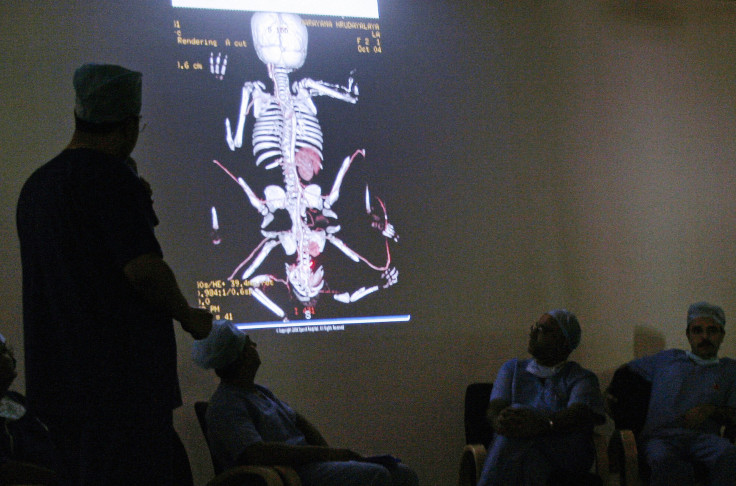Conjoined Twins Successfully Separated For First Time Ever In Bangladesh

A pair of conjoined twins in Bangladesh were successfully separated Tuesday after a nine-hour operation. Thirty surgeons operated on 10-month-old Tofa and Tohura, who were fused along the back and buttocks.
The twins were born in September to Raju Mia and Shahida Begum. Both babies remained in stable condition following the operation at Dhaka Medical College Hospital (DMCH) in which their spinal cords were separated without significant problems. Doctors attributed the success to the “teamwork” of 30 doctors and staff.
Read: Surgeons Reveal Behind The Scenes Details Of Conjoined Twins Separation
“They regained consciousness around 5 p.m.,” said Shahnoor Islam, an associate professor at the hospital’s pediatric surgery department. “They have cried, moving their hands and feet.”

The twins were transferred to the intensive care unit in order to avoid exposure to germs following the operation. As is often the case in surgical procedures involving conjoined twins, one emerged stronger and healthier than the other.
“Toda is stronger and more active than Tohura,” hospital director Mizanur Rahman told BD News 24. “We are hoping they will recover after the surgery.”
The surgery was the first time such an operation was successful in Bangladesh, according to the Dhaka Tribune.
“An operation of this magnitude was beyond our capacity in Bangladesh just a couple of years ago,” said DMCH burn unit coordinator Samanta Lal Sen.
The twins’ recovery would have to be monitored at the hospital in the coming days. Doctors said they may need an additional two to three operations over the next three to six months in order to effectively reconstruct their urinary tracts, which they shared before the surgery.
Read: Conjoined 16-Year-Olds Refuse Surgery Despite Health Concerns
Conjoined twins are born once every 200,000 births, though many don’t survive for long, according to the University of Maryland Medical Center. An estimated 40 to 60 percent are stillborn, while another 35 percent only survive a single day. The survival rate overall ranges between five and 25 percent.
© Copyright IBTimes 2025. All rights reserved.





















